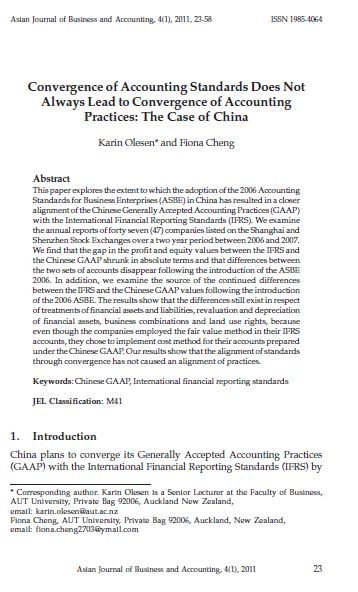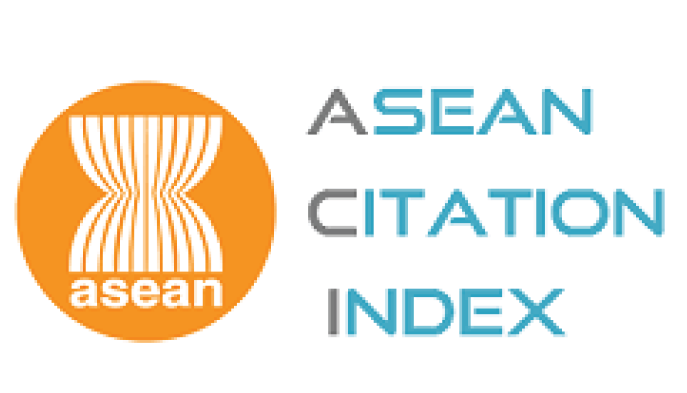Convergence of Accounting Standards Does Not Always Lead to Convergence of Accounting Practices: The Case of China
Abstract
This paper explores the extent to which the adoption of the 2006 Accounting
Standards for Business Enterprises (ASBE) in China has resulted in a closer
alignment of the Chinese Generally Accepted Accounting Practices (GAAP)
with the International Financial Reporting Standards (IFRS). We examine
the annual reports of forty seven (47) companies listed on the Shanghai and
Shenzhen Stock Exchanges over a two year period between 2006 and 2007.
We find that the gap in the profit and equity values between the IFRS and
the Chinese GAAP shrunk in absolute terms and that differences between
the two sets of accounts disappear following the introduction of the ASBE
2006. In addition, we examine the source of the continued differences
between the IFRS and the Chinese GAAP values following the introduction
of the 2006 ASBE. The results show that the differences still exist in respect
of treatments of financial assets and liabilities, revaluation and depreciation
of financial assets, business combinations and land use rights, because
even though the companies employed the fair value method in their IFRS
accounts, they chose to implement cost method for their accounts prepared
under the Chinese GAAP. Our results show that the alignment of standards
through convergence has not caused an alignment of practices.
Keywords: Chinese GAAP, International financial reporting standards
Downloads








